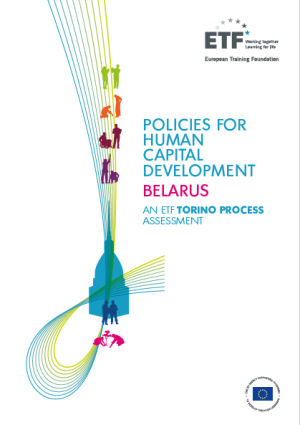The European Training Foundation (ETF) assessment provides an external, forward-looking analysis of the country's human capital development issues and VET policy responses in a lifelong learning perspective. It is based on evidence provided in Belarus' National Torino Process Report compiled in 2019 using a standardised questionnaire (National Reporting Framework – NRF) and additional information sources, where relevant.
This report comes at an important time in the development of the country. There is increasing evidence that some of the factors contributing to Belarus's remarkable growth record pre 2008 are no longer present, and that the potential growth is substantially lower than had previously been observed (WB, 2018). In spite of several years of strong growth and significant strides in reducing poverty, Belarus's combined debt (domestic and foreign) has increased to the highest in the history of the country. According to World Bank (June 2019), the need for structural economic reforms is now urgent to avoid economic instability.
Given the dominant position of state-owned companies in the economy, their performance has a determining effect on the country's economic growth. While heavy government interventions in the economy have helped Belarus avoid the social costs associated with economic restructuring, these policies have distorted the allocation of labour and resources, and have severely eroded the competitiveness of Belarus.
Recently, Belarus has launched ambitious programs to increase the competitiveness of the national economy in the domestic and international markets. Particular attention is paid to innovative high-tech sectors, such as IT, bio- and nanotechnology, robotics, energy-saving technologies, etc. At the same time, further innovative development of traditional industries and state-owned companies is required.
Successful implementation of such ambitious programs depends largely on the ability on the availability of skilled human resources and their adaptability. As a result, human capital development, is at the top of the government's policy agenda.
